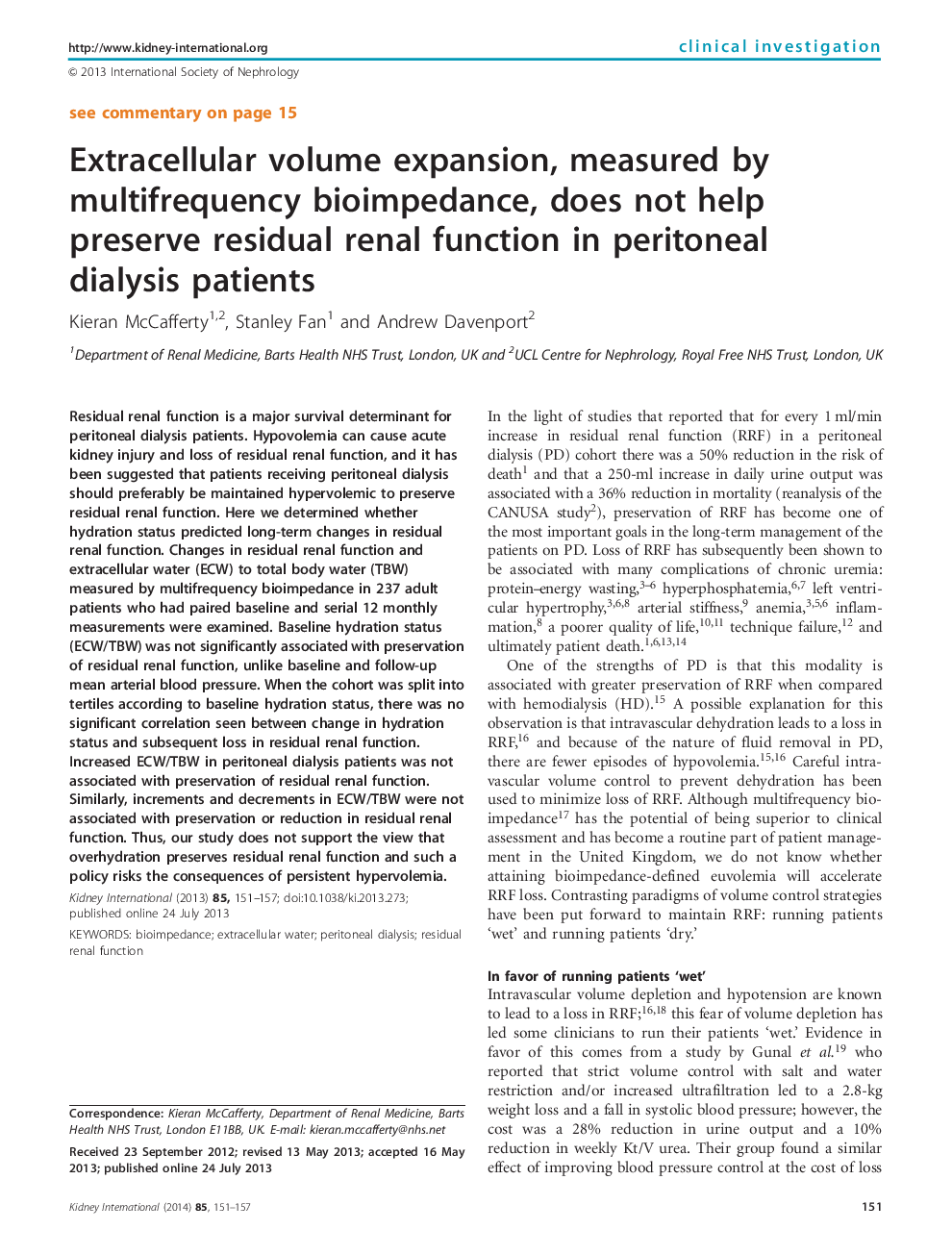| Article ID | Journal | Published Year | Pages | File Type |
|---|---|---|---|---|
| 6163701 | Kidney International | 2014 | 7 Pages |
Abstract
Residual renal function is a major survival determinant for peritoneal dialysis patients. Hypovolemia can cause acute kidney injury and loss of residual renal function, and it has been suggested that patients receiving peritoneal dialysis should preferably be maintained hypervolemic to preserve residual renal function. Here we determined whether hydration status predicted long-term changes in residual renal function. Changes in residual renal function and extracellular water (ECW) to total body water (TBW) measured by multifrequency bioimpedance in 237 adult patients who had paired baseline and serial 12 monthly measurements were examined. Baseline hydration status (ECW/TBW) was not significantly associated with preservation of residual renal function, unlike baseline and follow-up mean arterial blood pressure. When the cohort was split into tertiles according to baseline hydration status, there was no significant correlation seen between change in hydration status and subsequent loss in residual renal function. Increased ECW/TBW in peritoneal dialysis patients was not associated with preservation of residual renal function. Similarly, increments and decrements in ECW/TBW were not associated with preservation or reduction in residual renal function. Thus, our study does not support the view that overhydration preserves residual renal function and such a policy risks the consequences of persistent hypervolemia.
Related Topics
Health Sciences
Medicine and Dentistry
Nephrology
Authors
Kieran McCafferty, Stanley Fan, Andrew Davenport,
